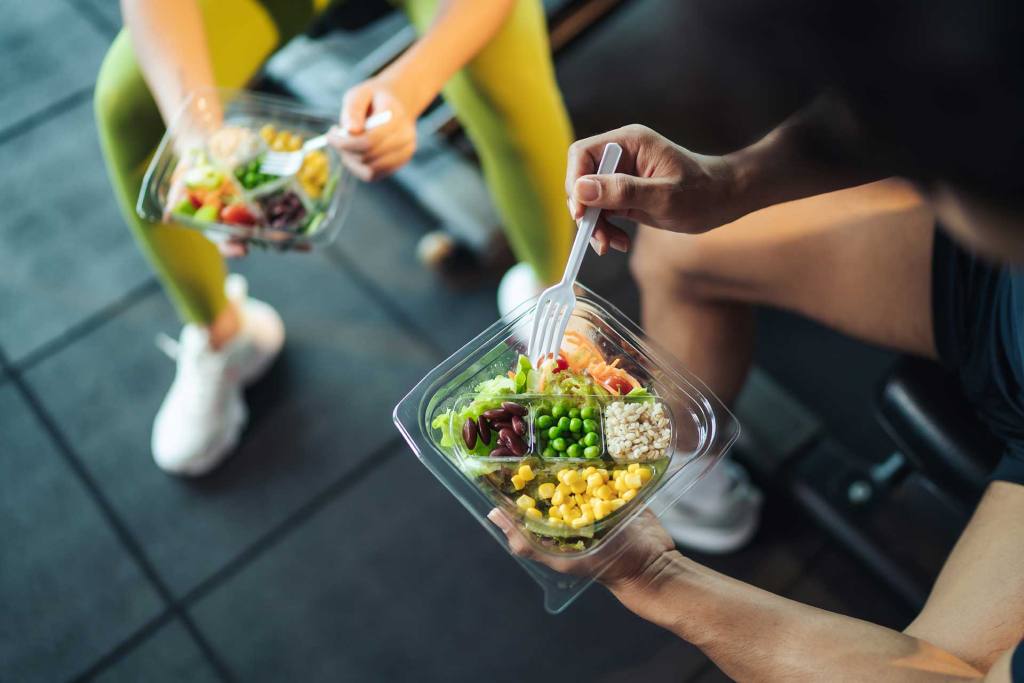In today’s fast-paced world, maintaining high energy levels is essential for staying productive and vibrant. Whether you’re juggling work, family, or personal commitments, the right nutritional strategies can make a significant difference in your daily vitality. This blog post explores how specific foods and nutrients can help boost energy levels, reduce fatigue, and improve overall well-being, along with practical meal ideas and dietary adjustments to keep you feeling your best.
Understanding Energy and Nutrition
Energy comes from the food we eat, which is broken down into glucose and used by our bodies for fuel. However, not all foods provide sustained energy. Foods high in refined sugars and unhealthy fats can cause energy crashes, leaving you feeling fatigued. On the other hand, a balanced diet rich in nutrients can help maintain steady energy levels throughout the day.
Key Nutrients for Boosting Energy
1. Complex Carbohydrates
Complex carbohydrates are a great source of sustained energy because they are digested slowly, providing a steady release of glucose into the bloodstream. Foods like whole grains, oats, brown rice, and quinoa are excellent sources of complex carbs. Unlike simple carbs, which can lead to energy spikes and crashes, complex carbs help keep your energy levels stable.
Meal Idea: Start your day with a bowl of oatmeal topped with fresh berries, nuts, and a drizzle of honey. This combination offers complex carbs, fiber, and antioxidants to fuel your morning.
2. Lean Proteins
Proteins are essential for muscle repair and maintenance, but they also play a role in energy production. Lean proteins like chicken, turkey, fish, eggs, and legumes can help sustain energy levels and prevent mid-afternoon slumps. Proteins help stabilize blood sugar levels, which is crucial for maintaining consistent energy.
Meal Idea: A grilled chicken salad with mixed greens, cherry tomatoes, avocado, and a vinaigrette dressing provides a balance of protein, healthy fats, and complex carbs for a satisfying lunch.

3. Healthy Fats
Healthy fats are vital for energy and overall health. They provide a concentrated source of energy and are crucial for the absorption of fat-soluble vitamins (A, D, E, and K). Avocados, nuts, seeds, and olive oil are excellent sources of healthy fats.
Meal Idea: Snack on a handful of almonds or walnuts, or add sliced avocado to your sandwiches or salads for a boost of healthy fats.
4. Iron
Iron is essential for transporting oxygen in the blood, which directly affects energy levels. Iron deficiency can lead to fatigue and decreased energy. Incorporate iron-rich foods such as lean meats, beans, lentils, and spinach into your diet.
Meal Idea: A hearty lentil soup with carrots, celery, and spinach is a great way to boost your iron intake while also providing a warm, comforting meal.
5. B Vitamins
B vitamins play a critical role in energy metabolism by helping convert food into usable energy. Key B vitamins include B1 (thiamine), B2 (riboflavin), B3 (niacin), B6 (pyridoxine), and B12 (cobalamin). Foods rich in B vitamins include whole grains, eggs, dairy products, and leafy green vegetables.
Meal Idea: A breakfast of scrambled eggs with spinach and whole-grain toast provides a good mix of B vitamins and protein to start your day with sustained energy.
Practical Dietary Adjustments
1. Stay Hydrated
Dehydration can lead to fatigue and decreased energy levels. Aim to drink at least 8 glasses of water a day, and more if you are active or live in a hot climate. Herbal teas and water-rich foods like fruits and vegetables can also contribute to your daily hydration needs.
Tip: Keep a reusable water bottle with you throughout the day to remind yourself to drink regularly.
2. Balance Your Meals
Ensure that each meal includes a balance of complex carbohydrates, lean proteins, healthy fats, and plenty of vegetables. This balance helps stabilize blood sugar levels and provides a steady supply of energy.
Tip: Use a plate method to visualize your meals: fill half of your plate with vegetables, one-quarter with lean protein, and one-quarter with whole grains or starchy vegetables.
3. Eat Regularly
Skipping meals can lead to energy dips and increased fatigue. Aim to eat every 3-4 hours to maintain consistent energy levels. Include snacks like fruits, nuts, or yogurt to keep your energy up between meals.
Snack Idea: A small apple with a tablespoon of almond butter is a nutritious and energizing snack.
4. Limit Refined Sugars and Processed Foods
Foods high in refined sugars and processed ingredients can cause rapid spikes in blood sugar followed by crashes that leave you feeling tired. Focus on whole, minimally processed foods to maintain steady energy levels.
Tip: Read nutrition labels to avoid products high in added sugars and unhealthy fats.
Sample Daily Meal Plan for Energy
Breakfast: Greek yogurt with mixed berries, a tablespoon of chia seeds, and a sprinkle of granola.
Mid-Morning Snack: A banana and a handful of walnuts.
Lunch: Quinoa and black bean salad with bell peppers, corn, avocado, and a lime-cilantro dressing.
Afternoon Snack: Carrot sticks with hummus.
Dinner: Baked salmon with a side of roasted sweet potatoes and steamed broccoli.
Evening Snack: A small bowl of mixed berries.
Conclusion
Boosting your daily vitality is not just about finding quick fixes but making sustainable dietary changes. By focusing on nutrient-rich foods and maintaining balanced meals, you can enhance your energy levels, reduce fatigue, and improve overall well-being. Incorporating these nutritional strategies into your daily routine can help you feel more energized, focused, and ready to tackle whatever comes your way. Remember, it’s about consistency and making choices that support your long-term health and vitality.

Leave a Reply